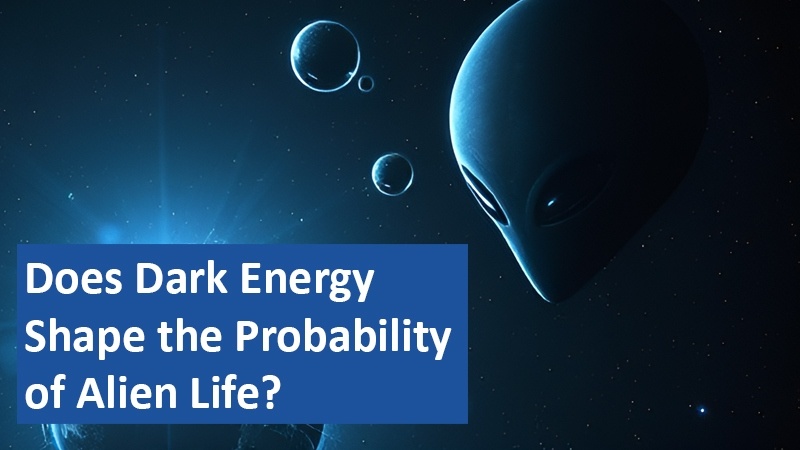New research explores how dark energy influences the potential for intelligent life in different universes. Building on earlier models, scientists have developed a new equation focusing on cosmic expansion and stellar formation. This approach provides fresh insights into the role dark energy plays in creating habitable environments.
By John Adams
A New Take on the Drake Equation

The Drake Equation, formulated in the 1960s by Dr. Frank Drake, estimated the number of extraterrestrial civilizations in the Milky Way. It incorporated parameters like the star formation rate, the fraction of stars with planets, and the number of habitable planets. Recent updates suggested that up to 35 intelligent civilizations might exist in our galaxy. Researchers at Durham University, however, expanded this idea by examining how dark energy influences the likelihood of intelligent life across various universes.
The Role of Stars in Supporting Life
The new model, published in the Monthly Notices of the Royal Astronomical Society, highlights the importance of stars as a foundation for life. Stars provide the conditions necessary for habitable planets to form, which makes them central to assessing the potential for intelligent life. Unlike the Drake Equation, this formula doesn’t aim to calculate the exact number of extraterrestrial civilizations. Instead, it evaluates the relative probability of life emerging in universes with varying properties.
Our Universe Is Not the Optimal One
The findings suggest that a universe with a higher density of dark energy would be more conducive to life. In such a universe, 27% of ordinary matter would convert into stars, compared to 23% in our own. This implies Earth does not reside in the most “life-friendly” universe. Surprisingly, even with significantly higher levels of dark energy, conditions favorable to life could still arise, challenging prior assumptions about our universe’s uniqueness.
Future Implications for Astrobiology
Understanding how dark energy affects star formation and life development could redefine cosmic biology. Dark energy accelerates the universe’s expansion while stabilizing star systems for billions of years—timeframes critical for the emergence of intelligent life. Researchers believe the model could reveal new perspectives on life’s origins and whether fundamental questions about our universe need revisiting.
This research opens exciting avenues for exploring life’s emergence across different universes.
Based on information from www.forschung-und-wissen.de and own research.